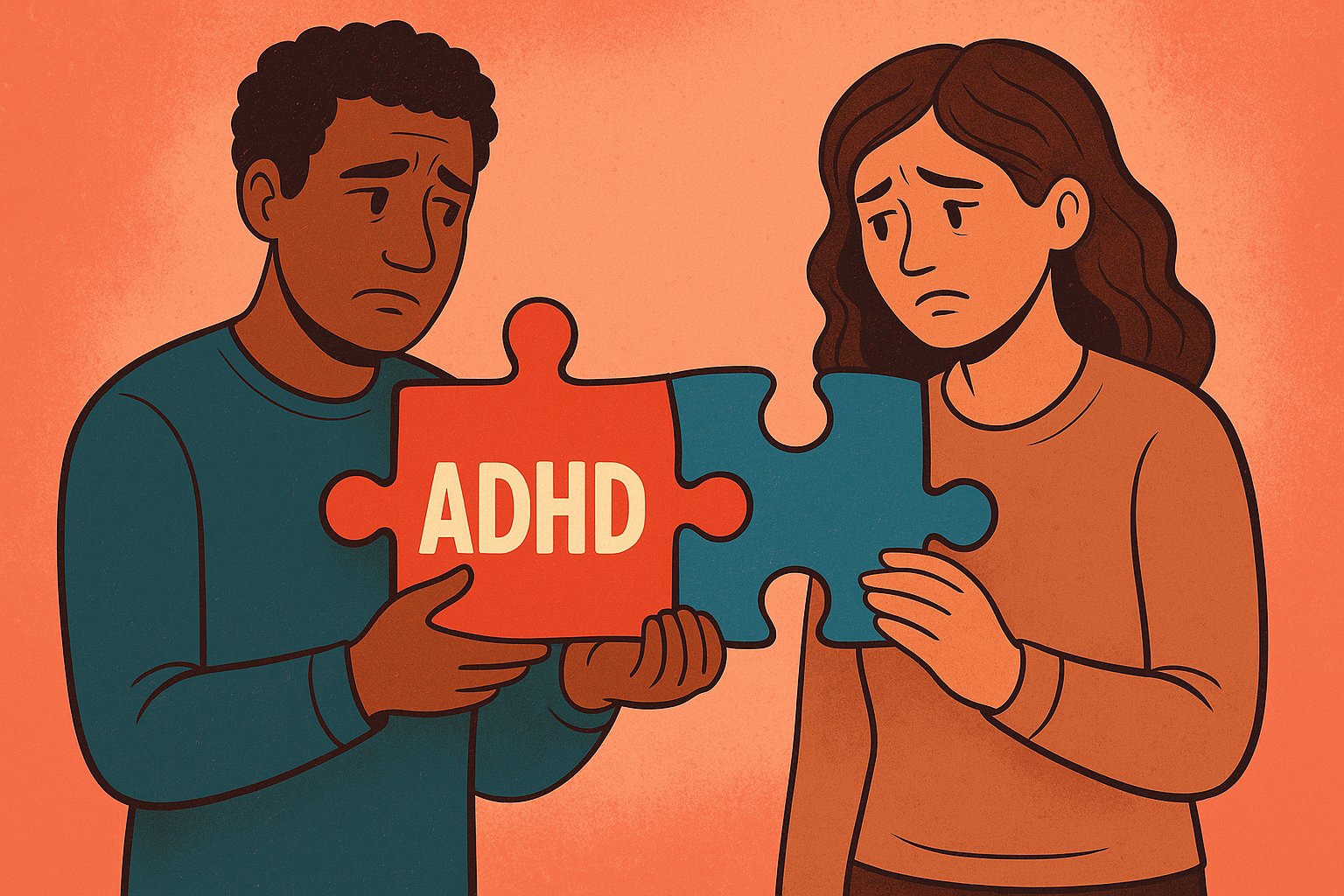Website designed with the B12 website builder. Create your own website today.
Start for free
What Happens When You Become the Glue Holding Everything Together
If you’re the non-ADHD partner in a relationship, you’ve probably felt it—that slow, creeping sense of being forgotten, not in a cruel way, but in an absentminded way. The dates you planned? Missed. The bills you organized? Ignored. The hard conversations you initiated? Half-heard, half-lost in the noise of everything else.
You love your partner. You know they’re not lazy or selfish. But you still feel unseen, exhausted, and so damn lonely.
Let’s name what that is: the invisible emotional labor of living with and loving someone with ADHD.
What It Looks Like Behind Closed Doors
Non-ADHD partners often carry the unspoken roles of:
You start each day not just managing your life—but theirs, too. You remind them to pay the water bill. You fill in the birthday card they forgot. You cover for their forgotten appointments or impulsive decisions. You create the routines, track the school forms, organize the house, and then feel like you’re the nag for even bringing any of it up.
Over time, this becomes less about tasks and more about identity. You lose yourself in the “function” of the relationship.
The Emotional Toll You Can’t See from the Outside
You’re holding your relationship together with spreadsheets, sticky notes, and deep breaths. Meanwhile, your needs go unmet.
Here’s what partners commonly report:
These aren’t just feelings—they’re warning signs of emotional overload.
The Dangerous Pattern of the Parent/Child Dynamic
One of the most damaging (and common) patterns in ADHD marriages is the parent-child dynamic.
Here’s the worst part: both partners hate it.
The non-ADHD partner never signed up to be a parent. And the ADHD partner doesn’t want to feel managed or scolded. But without awareness and support, it becomes the default setting.
Why It’s Not Just About Love—and What You Can Do
You may love your partner deeply. You may know they’re trying. But love doesn’t cancel out exhaustion. Compassion doesn’t cure burnout.
What can help:
Real Talk from Real Partners
“I felt like the only adult in our marriage for years. And I resented him—but I also felt so guilty for feeling that way. I didn’t know ADHD could do this. Once he was diagnosed, it finally made sense. But I still needed space to heal.” — Tasha, 42
“I loved him, but I hated the dynamic we were in. It wasn’t romantic—it was management. Coaching and couples therapy saved us. But only after we both admitted how far we’d drifted.” — Eli, 38
A Final Note to the Non-ADHD Partner
You’re not wrong for feeling what you feel.
You’re not selfish.
You’re not overreacting.
You’re not alone.
This journey isn’t just about understanding ADHD. It’s about understanding yourself. Your limits. Your worth. And your right to have a relationship that supports both of you.
Up Next: Part 3 — “Diagnosis, Discovery & Relief: The Power of Knowing What You’re Dealing With”
We’ll dig into how to get a proper ADHD assessment (for one or both partners), what to expect, how adult ADHD differs from childhood diagnoses, and how naming the condition can radically change a marriage—for the better.